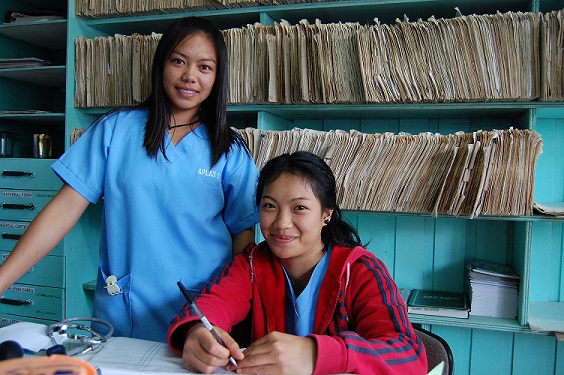
17 May HRH2030 Launches New Activity to Expand Access to Quality Health Services in the Philippines
The USAID HRH2030 program announces the start of a new collaboration with the Philippines Department of Health to strengthen the country’s health workforce.
The launch of HRH2030 comes at a critical time as current imbalances in the development and distribution of health workers pose challenges to the Philippine health system. Only 10 percent of the country’s human resources for health are serving rural areas, leaving some municipalities without trained medical professionals. In addition to shortages of qualified health professionals in underserved areas, there are significant variations in health service quality, which cause inequities in health outcomes.
“We expect HRH2030 to provide broad technical assistance much needed by the Philippines Department of Health to come up with long-term solutions to the country’s challenges in ensuring sufficient, competent, and balanced distribution of health workers.”
— Dr. Christine Joan Co, officer-in-charge of the Department of Health’s Human Resources Development Bureau
The Philippines Department of Health’s goal for its health workforce is to achieve an “adequate number of health human resources at all levels with competence to deliver universal health care through the continuum of preventive, promotive, curative, and rehabilitative health interventions.” To help achieve this goal, HRH2030 will build the capacity of the Department of Health to strengthen HRH leadership, governance, and performance management and advance the use of data for HRH decision-making at the central and regional levels.
In addition, USAID/Philippines Mission Director Lawrence Hardy II notes that USAID, through HRH2030, will work closely with the Department of Health to advance long-term solutions to improve the skill mix, competency, and distribution of the health workforce at the primary care level.
“We will assist in a way that empowers the Philippine government to provide quality health care for its citizens, including family planning and maternal and child health and tuberculosis control services for vulnerable populations,” Hardy said.
Photo: Health workers in the Philippines, such as those pictured here at the Buguias Rural Health Unit, provide quality family planning and maternal and child health services to clients thanks in part to training from USAID and its partners. Photo credit: THisanan/USAID/PRISM2





